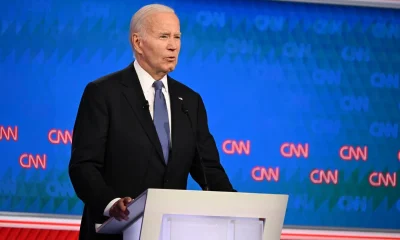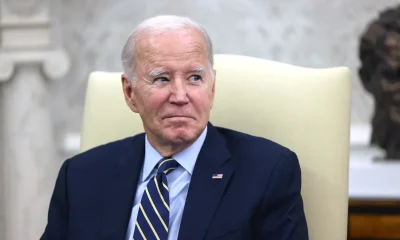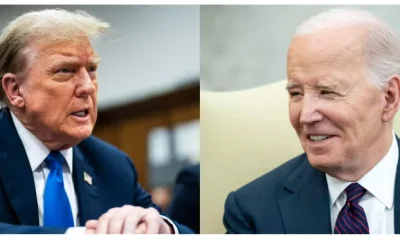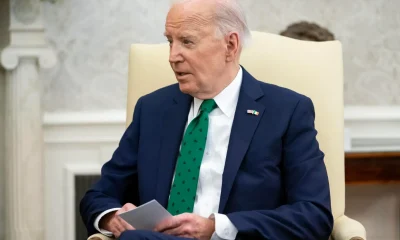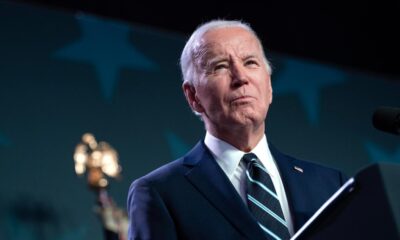International
Special prosecutor defends comments on Biden’s memory in classified documents probe
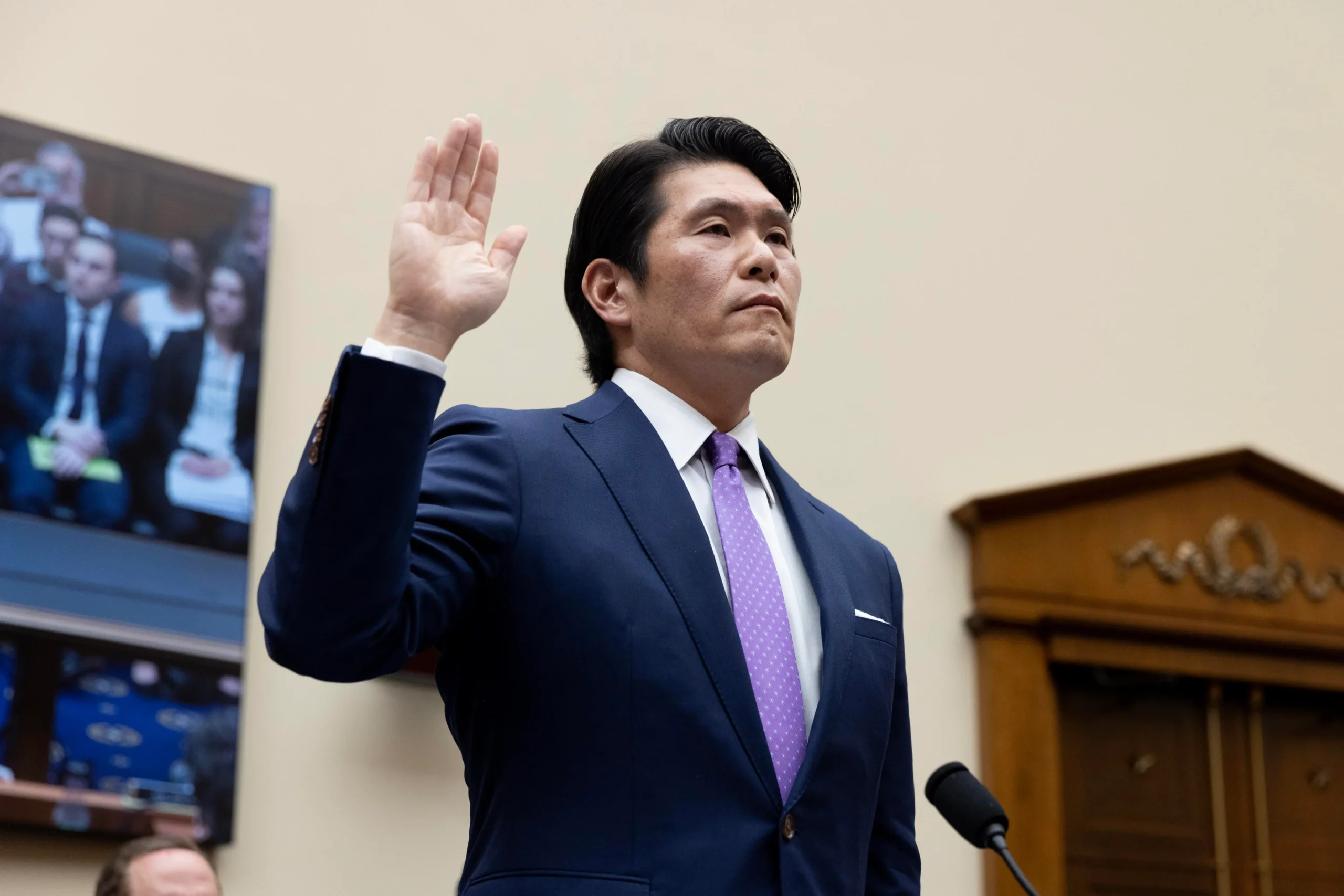
The special prosecutor who investigated Joe Biden’s handling of classified documents during his time as vice president of the United States, Robert Hur, justified the decision to include comments on the memory of the current US president in his report.
Hur pointed out in the statement he will read this Tuesday before a committee of the House of Representatives of Congress, and which was obtained by US media, that it was necessary not only to reach a conclusion about the president’s actions but also to explain the reason for his decision.
In his February 8 report, Hur exempted Biden, 81, for the retention of classified documents but added that the politician proved to have “a significantly limited memory,” a comment criticized by the president of the United States.
“I knew that for my decision to be credible, I could not simply announce that I recommended that no charges be filed and leave it at that. I needed to explain why,” says Hur in his statement delivered before this morning’s hearing in the Judicial Committee of Congress.
The special prosecutor added that both “the evidence and the president himself put his memory at the center” of the investigation and that his assessment in the report on the relevance of the president’s memory “was necessary, accurate and fair.”
“And what is more important, what I wrote is what I think the evidence shows, and what I hope the jury would perceive and believe. I didn’t dilute my explanation. And I didn’t unfairly disqualify the president either. I explained to the Attorney General my decision and the reasons,” he explained.
The Department of Justice began investigating Biden since at the end of 2022 they were found at his home in Delaware, and in a private office, about twenty classified documents from the time when he was Barack Obama’s vice president (2009-2017).
The result of that investigation is a 400-page report, which was written by Hur, who was appointed special prosecutor of the case by the Attorney General of the United States, Merrick Garland.
The report points out that Biden demonstrated “a significantly limited memory” in the interrogations and that his condition in 2023 had worsened compared to the recordings of 2017 since, for example, he did not remember the dates on which he served as vice president.
“He didn’t even remember when his son Beau,” who died of cancer in 2015, explained the prosecutor.
In response to Hur’s report, Biden stated that his memory is fine.
“I have good intentions, and I am an older man, and I know what the hell I am doing,” Biden said on February 8 when he was asked about his reaction to Hur’s conclusions.
International
Venezuela Debates Broad Amnesty Law Covering 27 Years of Chavismo

Venezuela’s Parliament began debating on Thursday a sweeping amnesty bill that would cover the 27 years of Chavismo in power, while explicitly excluding serious human rights violations and crimes against humanity.
The proposed legislation, titled the “Amnesty Law for Democratic Coexistence,” was introduced by interim President Delcy Rodríguez, who assumed power following the capture of Nicolás Maduro during a U.S. military operation.
The legislative session was convened for Thursday afternoon, with lawmakers holding an initial discussion focused on the general principles of the bill. This phase precedes a consultation process with civil society, after which the proposal will move to a final debate examining each article individually.
According to a draft of the bill obtained by AFP, the amnesty would apply to individuals accused of crimes such as “treason,” “terrorism,” and “incitement to hatred,” charges that were frequently brought against political prisoners over the past decades. The scope also includes offenses ranging from acts of rebellion to punishments imposed for social media posts or messages sent through private messaging services.
The bill’s explanatory text emphasizes reconciliation, stating that it seeks to move away from “vengeance, retaliation, and hatred” in favor of “opening a path toward reconciliation.”
However, the proposal explicitly excludes from its benefits crimes such as “serious human rights violations, crimes against humanity, war crimes, intentional homicide, corruption, and drug trafficking.”
These exclusions, the text notes, are based on strict compliance with the Venezuelan Constitution, which already prohibits granting amnesties or pardons for such offenses.
International
Díaz-Canel Calls for Talks With Washington Without Pressure as U.S. Tightens Oil Sanctions
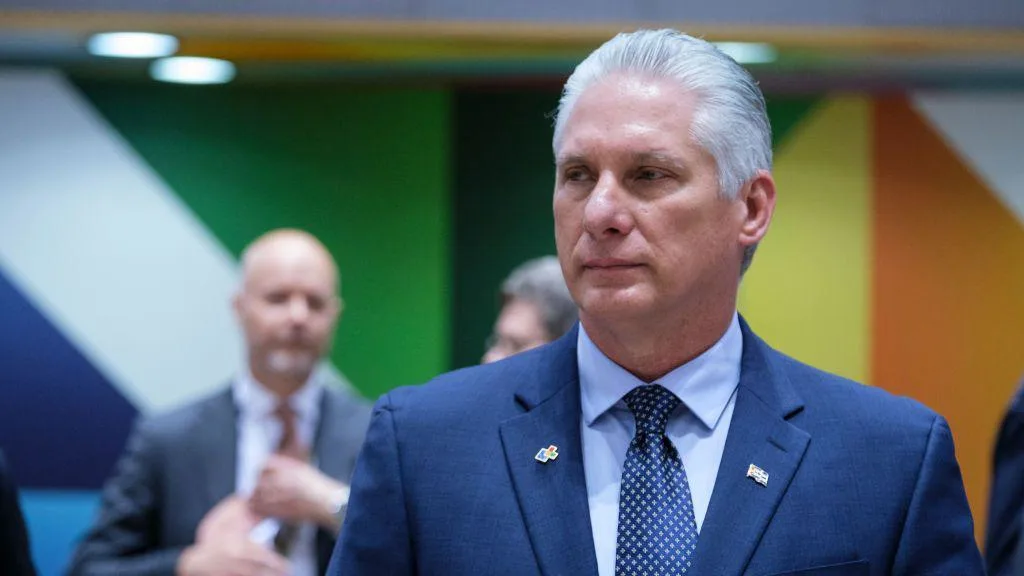
Cuban President Miguel Díaz-Canel said on Thursday that his government is willing to engage in dialogue with the United States, provided that talks take place on equal terms and without pressure.
“Cuba is prepared to hold a dialogue with the United States on any issue that either side wishes to discuss,” Díaz-Canel said during a press conference broadcast nationwide on radio and television.
He stressed, however, that such dialogue would only be possible “without pressure, without preconditions, on the basis of equality, and with full respect for our sovereignty, independence, and self-determination.” The Cuban leader added that discussions should avoid issues that could be interpreted as interference in the country’s internal affairs.
Díaz-Canel’s remarks come at a time when Cuba is facing growing pressure from the administration of U.S. President Donald Trump, which has implemented a series of measures that have restricted the island’s access to fuel needed to generate electricity.
Washington has sought to prevent Cuba from receiving oil from Venezuela, its main ally for more than two decades, and has stepped up pressure to reduce crude shipments from Mexico. In addition, Trump signed an executive order in late January allowing the United States to impose tariffs on countries that sell oil to Cuba.
In that order, the U.S. president declared that Cuba represents an “unusual and extraordinary threat” to U.S. national security and foreign policy, accusing the island of aligning itself with hostile countries and actors.
International
HRW Warns Trump’s Influence Has Weakened Human Rights in Latin America
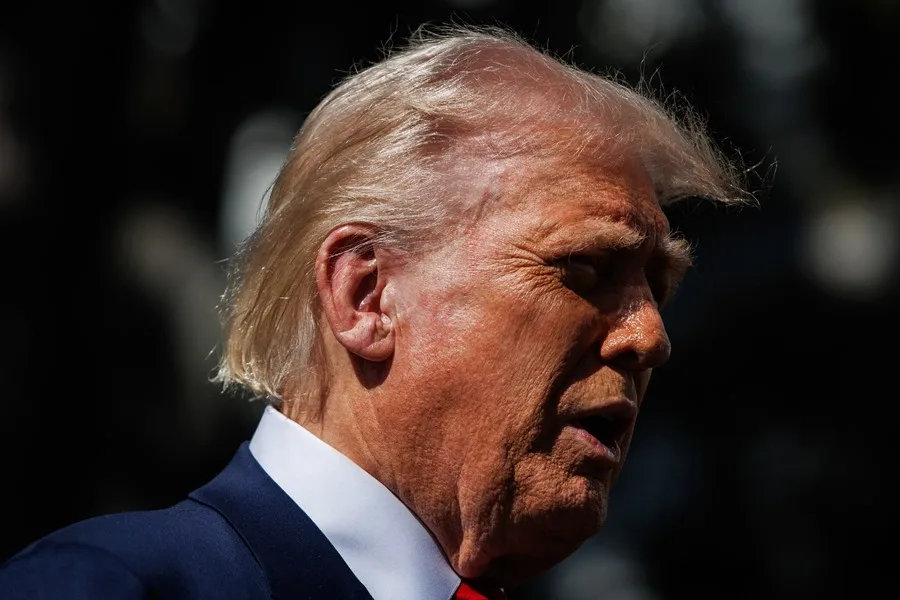
Human Rights Watch (HRW) warned that the political influence and rhetoric of U.S. President Donald Trump have contributed to a deterioration of human rights conditions across Latin America and the Caribbean. In its World Report 2026, the organization stated that several governments in the region have committed abuses against migrants and citizens, or have used U.S. policies as justification to impose harsher repressive measures.
During the first year of Trump’s new term, HRW observed that multiple countries violated the rights of foreign nationals under direct pressure from Washington. Other governments deepened security strategies based on militarization, mass detentions and excessive use of force, according to the report.
“The impact of the Trump administration has undoubtedly been negative in Latin America and the Caribbean,” said Juanita Goebertus, HRW’s Americas director. However, she emphasized that “governments in the region remain responsible for defending democracy and fundamental rights, regardless of who is in power in Washington.”
HRW also reported that the United States significantly reduced cooperation funding for human rights organizations and independent media. At the same time, countries such as El Salvador, Peru and Ecuador passed laws allowing the arbitrary closure of civil society organizations and media outlets, weakening democratic systems and institutional checks and balances.
The organization further criticized what it described as a “double standard” in U.S. foreign policy, which condemns human rights violations in Venezuela, Cuba and Nicaragua while overlooking serious abuses committed by allies such as El Salvador, Peru and Ecuador. The report also included criticism of the U.S. military attack against Venezuela in early 2026, warning that it could strengthen Nicolás Maduro’s regime and respond primarily to U.S. political and commercial interests.
-

 International3 days ago
International3 days agoEpstein Denies Being ‘the Devil’ in Newly Released Video Interview
-

 International3 days ago
International3 days agoSpain Seeks to Ban Social Media Access for Children Under 16
-

 International3 days ago
International3 days agoMexico to Send Humanitarian Aid to Cuba Amid U.S. Threats Over Oil Shipments
-

 International3 days ago
International3 days agoPetro Resumes Extraditions, Sends Top Criminal to U.S. Before White House Talks
-

 International2 days ago
International2 days agoDelcy Rodríguez Takes Control of Chavismo as Venezuela Enters a U.S.-Supervised Transition
-

 International3 days ago
International3 days agoMexico Arrests Suspect in Shooting of Sinaloa Lawmakers
-

 International3 days ago
International3 days agoHypothermia Linked to Most Deaths During New York’s Recent Cold Spell
-

 International2 days ago
International2 days agoHRW Warns Trump’s Influence Has Weakened Human Rights in Latin America
-

 International22 hours ago
International22 hours agoDíaz-Canel Calls for Talks With Washington Without Pressure as U.S. Tightens Oil Sanctions
-

 Central America22 hours ago
Central America22 hours agoPanama Will Not Be Threatened, President Says Amid Rising Tensions With China
-

 Central America5 days ago
Central America5 days agoCosta Rica Goes to the Polls as Voters Choose Continuity or Change
-

 International21 hours ago
International21 hours agoVenezuela Debates Broad Amnesty Law Covering 27 Years of Chavismo
-

 Central America3 days ago
Central America3 days agoLaura Fernández Says She Will ‘Never’ Allow Authoritarianism in Costa Rica
-

 Central America22 hours ago
Central America22 hours agoBukele’s Approval Rating Climbs to 91.9% in El Salvador, Survey Shows
-

 International3 days ago
International3 days agoNFL Investigating Emails Linking Giants Executive to Jeffrey Epstein

























